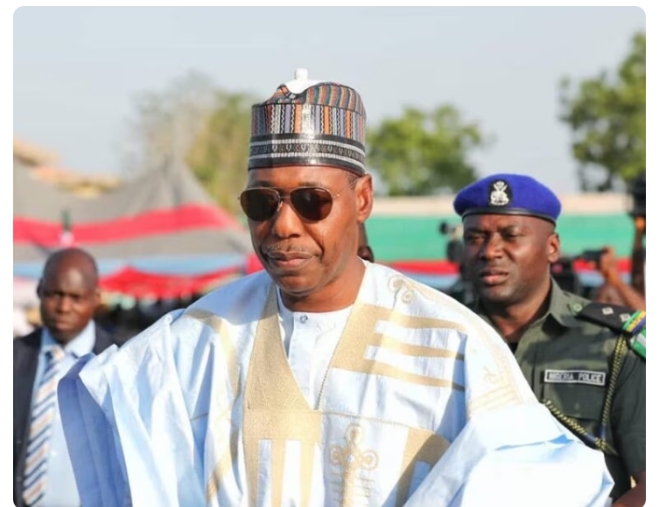Borno effectively managing Boko Haram crisis with DDDR programme
Story from Usman UMAR
Instability and turmoil in the North-East of Nigeria, particularly in Borno State due to the insurgency, have continued to be a significant challenge.
The broad effects, whether immediate, indirect, or long-term, visible or concealed, are numerous and varied.
According to a World Bank Report, around US$ 9 billion in infrastructure damages have occurred in the North-East, with Borno being the most heavily impacted, accounting for over 80% of such destruction.
The Borno State Government, led by Governor Babagana Umara Zulum and his Deputy, Dr. Umar Usman Kadafur, have been effectively managing the Boko Haram crisis, with thousands of terrorists and their families surrendering.
Those who have surrendered and continue to surrender are members of Jama’atu Ahlis Sunnah Lidda’awati Wal-Jihad (JAS) and Islamic State West Africa Province (ISWAP), collectively known as Boko Haram.
Both groups are classified as terrorist organisations by the UN Security Council.
Despite limited funds available to the state government, the current administration has made significant improvements in various sectors such as Education, Health, Agriculture, Water, Sports, Works, and Housing.
Leading the Disarmament, Demobilization, Deradicalization, and Reintegration (DDDR) process is the Deputy Governor, Dr. Umar Usman Kadafur.
He heads the Committee set up by the State Government, which includes experts, security personnel, NGOs, traditional rulers, religious leaders, and other stakeholders.
All efforts align with Borno State’s 25 Year Development Framework and 10-year Transformation Initiatives.
Presently, there are over 80,000 surrendered Boko Haram members housed at designated centers in Maiduguri.
They receive proper care, and many who have undergone rehabilitation have been successfully reintegrated into society.
During a recent visit by the Deputy Commandant of the National Institute of Policy Strategic Studies (NIPSS), Mr. David Egbeji, and his delegation to Maiduguri, the Deputy Governor sought support from the institute moving forward.
Kadafur highlighted the administration’s investments in managing the insecurity caused by terrorists and acknowledged the commitment and collaboration among the military, security agencies, civil society organisations, and other stakeholders that led to the relative peace in the state.
Read also: Repentant Boko Haram terrorists block Maiduguri highway to demand N30,000 allowance
He emphasized the need for support in the ongoing DDDR process and the reconstruction and rehabilitation initiatives for sustainable development.
The Deputy Commandant of NIPSS expressed his institution’s willingness to collaborate with the State Government and other stakeholders to restore peace in Borno and the country as a whole.
Efforts have been made to ensure the safe return and resettlement of Internally Displaced Persons (IDPs) to their communities.
The synergy among stakeholders has facilitated the acceptance of repentant Boko Haram militants as peace returns to the state.
Overall, the focus is on the reintegration of surrendered insurgents into society, providing them with education, food, and clothing.
Continued efforts by the government, security agencies, and stakeholders are crucial in sustaining the fight against terrorism and promoting peace in the region and the nation.
Follow the Neptune Prime channel on WhatsApp:
Do you have breaking news, interview request, opinion, suggestion, or want your event covered? Email us at neptuneprime2233@gmail.com





